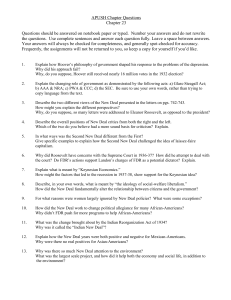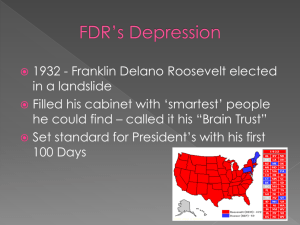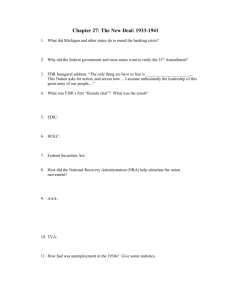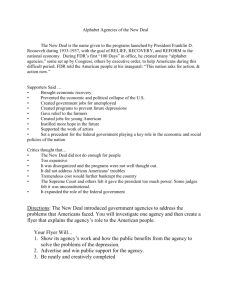Franklin D. Roosevelt
advertisement
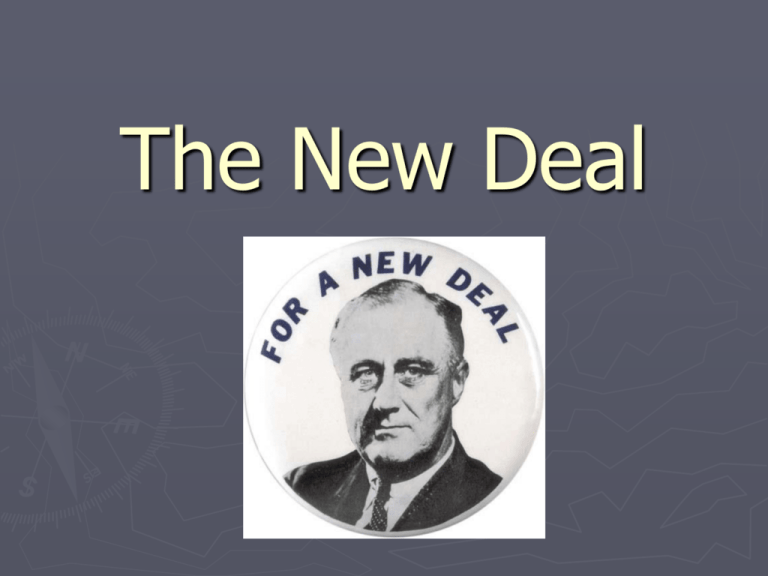
The New Deal President Franklin D. Roosevelt’s plan/program to alleviate the problems of the Great Depression focusing on relief for the needy, economic recovery and financial reform FDR: The Man ►Distant cousin of Pres. T.R. ►More than any other president— popularly known by his initials ►Only child of a wealthy NY family ►Paralyzed by polio in 1921 FDR: Greatest Strengths ►Warm personality ►Speaking style ►Leadership Eleanor Roosevelt ►Most active first lady in American history ►Wrote newspaper columns, gave speeches, traveled the country ►Served as the president’s social conscience & influenced him to support minorities and the less fortunate New Deal Philosophy ►In his campaign for president (1932), FDR offered vague promises but no concrete programs ►FDR did not have a detailed plan for ending the depression ►Committed to action & willing to experiment with political solutions to economic problems New Deal ►During the early years of FDR’s presidency, it became clear that his New Deal programs were to serve the three R’s . . . New Deal: for people out of work ►Recovery for business & the economy ►Reform of American economic institutions ►Relief Recovery ► FDR’s first two years in office were largely focused on achieving one of the three R’s: recovery ► Financial recovery programs included: Federal Deposit Insurance Corporation, the Civilian Conservation Corps (CCC), the Public Works Administration (PWA) . . . Brain Trust ►In giving shape to his New Deal, FDR relied on a group of advisers who had assisted him while he was governor of NY ►Roosevelt turned to a group of university professors, known as the Brain Trust Advisers ►The people FDR appointed to administrative positions were the most diverse in US history ►Record number of African Americans, Catholics, Jews & women Perkins: Woman of Vision ►His Secretary of Labor was Frances Perkins ► First female cabinet secretary The First Hundred Days ►With the nation desperate & close to the brink of panic, the Democratic Congress looked to the president for leadership ►Immediately after being sworn into office (1933) Roosevelt called Congress into a 100 day long special session The First 100 Days ►During this brief period, Congress passed into law every request of FDR ►Enacted more major legislation than any single Congress in history ►So numerous were the new laws & agencies—they were referred to by their initials (WPA, AAA, CCC. . .) Bank Holiday ►In early 1933, banks were failing at a frightening rate, as depositors flocked to withdraw funds ►To restore confidence in banks, FDR ordered the banks closed for a bank holiday (March 6, 1933) Bank Holiday ►FDR went on the radio to explain that banks would be reopened after allowing enough time for the govt to reorganize them on a sound basis Fireside Chats
